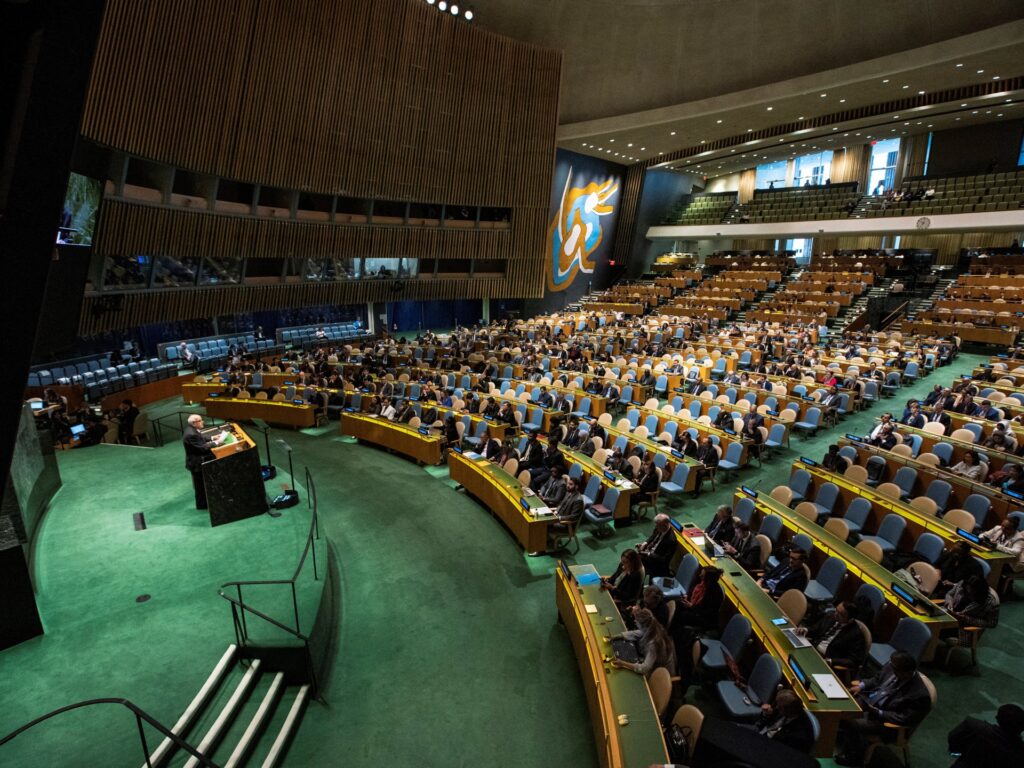On May 1, a draft resolution was submitted to the UN General Assembly to declare July 11 as the Day of Remembrance for the 1995 Srebrenica Genocide. The document was proposed by Germany and Rwanda, and co-sponsored by the United States and other countries. The draft resolution is scheduled to be debated and voted on by the UN General Assembly on May 23.
The actions proposed in the draft resolution, such as condemning genocide denial and prohibiting the glorification of war criminals, are undoubtedly important and necessary.
The proposal to create an official day to commemorate the Bosnian genocide comes amid a revisionist effort by officials in Republika Srpska, one of the post-war states within the borders of Bosnia-Herzegovina.
Authorities in Republika Srpska have sought to cover up war crimes committed by Serb forces during the Bosnian war, including the massacre of 8,372 Muslim men and boys in Srebrenica, which was then designated a United Nations safe zone. Bosnia's President Milorad Dodik has also been involved in various provocations that threaten Bosnia's stability and territorial integrity.
But the timing and sponsorship of this submission to the UNGA raises troubling questions that need to be addressed. Why did it take countries like Germany and the United States so long to put together this resolution? And why are they pushing for it now, despite being accused of complicity in what the International Court of Justice (ICJ) called “plausible genocide”?
For years, the United States, Germany and other European countries have ignored Bosnian calls to address the threat to stability and genocide denial emanating from Republika Srpska. They even appeared to appease Republika Srpska and its backer, the Serbian government, amid a tug-of-war with Russia over Serbia's future in the European Union and its position vis-à-vis Ukraine.
At the same time, it is a credible and persuasive argument that both the United States and Germany were complicit in the Gaza massacre by providing direct military, economic and diplomatic support to Israel.
Last month, the US Congress passed a bill setting aside $17 billion in military aid to Israel. As of March, the United States had made more than 100 arms shipments to the Israeli military. Last year, Germany approved $354 million worth of arms sales to Israel, a tenfold increase compared to 2022, with the increase due to exports since October 7. be.
Both the U.S. and German governments continue to supply weapons to Israel despite facing legal challenges and criticism at home. In February, a US judge said: “The ongoing military siege in Gaza is intended to exterminate an entire ethnic group and therefore likely falls within the internationally prohibited scope of genocide.” However, jurisdictional issues forced the court to dismiss a lawsuit against US President Joe Biden and other government officials for complicity in genocide.
Germany has had to appear before the ICJ to defend arms sales to Israel after Nicaragua accused it of complicity in genocide. The court did not impose a ban on these sales, but ruled that the court had jurisdiction and the case should proceed.
Meanwhile, a group of German lawyers representing Palestinian families in Gaza has accused German officials, including Chancellor Olaf Scholz, of aiding and abetting Israel's ongoing genocide in their homeland and criminalizing them for supplying weapons to Israel. Accused.
The United States and Germany have also seen a wave of student-led protests and occupations in solidarity with the Palestinian people and in denunciation of their governments' support for the genocide. Students in both countries are facing violent repression as U.S. and German authorities seek to criminalize any criticism of Israel and smear students who peacefully protest and exercise their rights to free speech.
Of course, the German and American governments deny that what is happening in Gaza is genocide, and both have intervened on Israel's side in South Africa's case before the ICJ.
One cannot help but wonder, then, what is the point in passing a resolution commemorating a genocide while denying that another genocide is occurring? Remembrance is not only about keeping alive the memory of the victims of atrocities, but also about preventing it from being repeated. Germany and the United States are making the resolution meaningless with their actions against Gaza. Worse, they are undermining and betraying the Geneva Conventions and international human rights law.
Germany and the United States are essentially politicizing genocide. In terms of their position on Gaza, they are basically saying that no one of their allies can be accused of committing genocide. This allows any government, any group, with the “right” alliances, to get away with this heinous crime.
Shakespeare said, “All the world is a stage, and all men and women are mere players.'' In this tragedy of genocide, we seem to be in the final stage, the stage of impunity. . By performing on the world stage, the United States, Germany, and other powers are guaranteeing impunity not only for Israel but also for future mass murderers.
The views expressed in this article are the author's own and do not necessarily reflect Al Jazeera's editorial policy.



